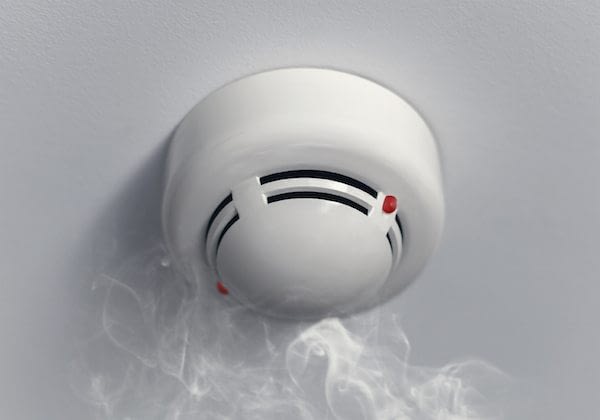- Insurance Services
- Auto, Home & Personal Insurance
- Classic Car Insurance
- Business Insurance
- Business Interruption Insurance
- Business Owners Package Insurance
- Commercial Auto Insurance
- Commercial Property Insurance
- Commercial Umbrella Insurance
- General Liability Insurance
- Hotel & Motel Hospitality Insurance
- Manufacturers Insurance
- Professional Liability (E&O) Insurance
- Surety Bonds
- Workers' Compensation Insurance
- - View All Business
- Life & Health Insurance
- About Us
- Policy Service
- Contact Us
How To Minimize The Fire Hazards In Your Home
Article originally posted on www.insuranceneighbor.com(opens in new tab)

Your home is probably your most valuable possession; losing it to fire is unimaginable, but it happens. As a homeowner, you can take steps to minimize the fire hazards in your home and not only protect your loved ones, but also avoid expensive property damage.
Plan an Escape Route
Every family member should be involved in a fire safety plan so each person knows exactly what to do if a fire breaks out. Fire exit routes should be discussed and practiced in family fire drills. Ensure there are two escape routes from every room. Rope fire ladders for upstairs bedrooms are important for rooms that do not have two escape routes and should be stored under the bed. Practice using these ladders and ensure the screens and windows can be easily removed.
Check Your Smoke Detectors
Keep your smoke detectors and carbon monoxide alarms in top working order. Replace the batteries two times a year, and check smoke detector units to ensure they are functioning properly. Each bedroom should have a smoke detector – they save lives.
Keep Fire Extinguishers Ready
Ensure you have charged fire extinguishers in the home and that they can be easily accessed. Small fires can be stopped with a correctly operated fire extinguisher. Contact your local fire department for information about purchasing and recharging your extinguisher.
Electrical Cords and Outlet Safety
Limit the number of electrical devices plugged into one outlet, particularly in older homes. Also, look over all of your electrical devices for worn cords and replace them immediately. Broken or frayed wires can lead to fire.
Teach Your Children Fire Safety
Children are interested in lighters, matches, and stoves. As a parent, keep these things out of reach.
Be Prepared for Grease Fires
To put out a grease fire on a stove – the most common type of home fire – never use water, as it will make the fire worse. Additionally, don’t swat at it to try to put it out, as this provides even more oxygen to burn. Instead:
- Leave the pot or pan where it is.
- Put on oven mitts, turn off the stove or oven element, and cover the fire with another pot or pan.
- Keep several boxes of baking soda in your home.
- If covering the grease fire doesn’t work, pour a large quantity of baking soda over it.
A home fire extinguisher can also put out a grease fire. Talk to your local fire department about the type of extinguisher they recommend, and keep it charged and ready in your kitchen area.
Are You Protected Against Property Damage?
Your homeowners insurance will include fire coverage, but it is important that you speak with your insurance agent and understand exactly what is covered. All homeowners insurance policies vary in the level of protection they offer. There may be lower-priced options on the market that could give you a higher level of protection.
If you would like your policy reviewed, connect with our friendly local agency. We would be happy to look over your current policies and search for a less expensive option with better coverage.
Filed Under: Personal Insurance | Tagged With: Homeowners Insurance